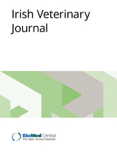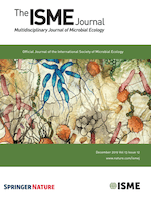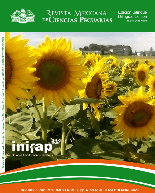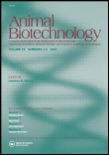
Animal Microbiome
Scope & Guideline
Exploring Microbial Dynamics for Healthier Ecosystems
Introduction
Aims and Scopes
- Microbiome-Host Interactions:
Research focusing on the interactions between animal hosts and their microbiomes, examining how these relationships influence health, behavior, and adaptation. - Nutritional Microbiology:
Studies investigating the effects of diet on microbiome composition and functionality, including the impact of specific feed components and dietary interventions on animal performance. - Microbiome Dynamics and Ecology:
Exploration of the ecological roles of microbiomes in various animal hosts, including studies on spatial and temporal dynamics of microbial communities. - Health and Disease Associations:
Research linking microbiome profiles with health outcomes in animals, including the role of microbiomes in disease susceptibility, immune responses, and treatment efficacy. - Technological Innovations:
Utilization of advanced technologies such as metagenomics, metabolomics, and machine learning to analyze and interpret microbiome data. - Conservation and Environmental Influences:
Research examining how environmental factors, habitat changes, and anthropogenic influences affect animal microbiomes and their ecological implications.
Trending and Emerging
- Functional Metagenomics:
An increasing trend towards functional metagenomic studies, focusing on understanding the roles and functions of microbiome members in health and disease, as well as their metabolic capacities. - Microbiome and Immune Interactions:
A growing interest in how microbiomes influence immune responses in animals, highlighting the interplay between gut health and overall immunity. - Microbiome in Conservation Biology:
Emerging research exploring the role of microbiomes in conservation efforts, including how microbiomes can inform population health and resilience in threatened species. - Impact of Environmental Changes:
Increased focus on how environmental factors, such as climate change and habitat alteration, affect microbiome composition and function in different animal species. - Applications of AI in Microbiome Research:
The integration of artificial intelligence and machine learning techniques for analyzing microbiome data is on the rise, providing new insights into complex microbial interactions and predictions.
Declining or Waning
- Traditional Dietary Studies:
Research solely focused on traditional dietary impacts without integrating microbiome analysis is becoming less common, as there is a growing emphasis on understanding the microbial interactions and their implications. - Single-Species Microbiome Studies:
There is a noticeable decline in studies examining microbiomes of single species in isolation, with a trend towards more integrative approaches that consider multi-species interactions and environmental contexts. - Basic Taxonomic Surveys:
The focus on basic taxonomic surveys of microbiomes is waning, as researchers are increasingly interested in functional and ecological implications rather than mere composition. - Antibiotic Resistance in Isolation:
Research examining antibiotic resistance in microbiomes without considering the broader ecological context or interactions within the microbiome is becoming less prevalent.
Similar Journals

Revista Romana de Medicina Veterinara
Transforming veterinary care through groundbreaking research.Revista Romana de Medicina Veterinara is a leading peer-reviewed journal dedicated to the field of veterinary medicine, published by the General Association of Romanian Veterinarians. With its ISSN 1220-3173 and E-ISSN 2457-7618, the journal aims to advance the domain of veterinary science through dissemination of high-quality research articles, case studies, and reviews that cover a wide array of topics including animal health, veterinary diagnostics, and treatment methodologies. Although primarily focused on the Romanian veterinary landscape, its scope is designed to engage a global audience of researchers, practitioners, and students seeking to enhance their knowledge and practice in veterinary medicine. The journal is committed to open accessibility, ensuring that vital research is readily available to the academic community without financial barriers, thereby encouraging collaboration and innovation. By providing a platform for cutting-edge veterinary research, Revista Romana de Medicina Veterinara plays a crucial role in fostering advancements that can significantly impact animal health and welfare both locally and internationally.

IRISH VETERINARY JOURNAL
Shaping the future of veterinary science, one study at a time.IRISH VETERINARY JOURNAL is a premier open-access publication in the field of veterinary science, established to disseminate high-quality research and innovations that advance the veterinary profession and animal health. Published by BMC since 2004, this journal not only ensures worldwide access to cutting-edge findings but also maintains an impressive ranking as Q1 in the Veterinary (miscellaneous) category according to the 2023 metrics, highlighting its significance and influence. With an impressive Scopus rank of #19/194 and a 90th percentile placement, it provides a robust platform for researchers, professionals, and students alike to engage with the latest studies, reviews, and case reports. The journal's coverage spans from its inception in 1973 to the present, catering to a diverse audience interested in various aspects of veterinary science, ensuring that it remains an essential resource for those passionate about the welfare of animals and the advancement of veterinary practices.

EGYPTIAN JOURNAL OF VETERINARY SCIENCE
Fostering collaboration for a thriving veterinary community.Welcome to the Egyptian Journal of Veterinary Science, a pivotal publication dedicated to advancing the field of veterinary science, particularly within the unique context of Egypt and the surrounding regions. Published by the Natl Information Documentation Centre, this journal has been a key scholarly resource since its inception in 1977, focusing on diverse aspects of veterinary medicine, including animal health, nutrition, and management practices. With an impressive editorial commitment and a wide scope covering animal science, equine studies, food animals, and small animal veterinary practice, the journal stands as a critical platform for researchers and professionals alike. While currently categorized in Q4 for Animal Science and Zoology, and achieving Q3 rankings in several other veterinary subfields, it serves as a vital avenue for disseminating innovative research and practical insights. Access to the latest findings and case studies aims to foster improved veterinary practices and enhance animal welfare standards. As we navigate the complexities of veterinary science, the Egyptian Journal of Veterinary Science remains an essential tool for those committed to the health and welfare of animals across various disciplines.

ISME Journal
Pioneering insights in microbiome and environmental dynamics.The ISME Journal, published by Oxford University Press, stands as a premier multidisciplinary platform dedicated to advancing the fields of Ecology, Evolution, Behavior, and Systematics as well as Microbiology. With its ISSN of 1751-7362 and E-ISSN 1751-7370, this renowned journal has successfully maintained a prestigious reputation reflected in its commendable Q1 rankings across both fields in 2023. It ranks #7 out of 721 in Ecology, Evolution, Behavior, and Systematics and #8 out of 182 in Microbiology, placing it in the top percentiles of relevant Scopus categories. Covering original research, reviews, and methodologies, the journal aims to foster interdisciplinary collaboration and inspire new paradigms in microbiome research, environmental processes, and evolutionary dynamics. Researchers, professionals, and students are encouraged to submit their findings to a journal that not only reaches a global audience but also influences the direction of ongoing scientific discourse. With a commitment to excellence, the ISME Journal represents an essential resource for anyone engaged in these transformative fields of study.

Revista Mexicana de Ciencias Pecuarias
Elevating Veterinary Science with Open Access InsightsRevista Mexicana de Ciencias Pecuarias, published by INIFAP-CENID PARASITOLOGIA VETERINARIA, is a prominent open-access journal since 2010 that caters to the fields of Animal Science and Veterinary Medicine. Based in Mexico, this journal addresses critical issues in animal health, production, and welfare, making it instrumental for researchers, professionals, and students seeking to advance their knowledge and practices. With an impact factor that reflects its growing influence, particularly in the Q3 quartile rankings in both Animal Science and Zoology as well as Veterinary (Miscellaneous) categories, the journal provides a vital platform for the dissemination of innovative research and findings. Additionally, its Scopus Ranks position highlights its role in publishing significant contributions to the fields of Veterinary Science and Agricultural Biology. The journal fosters a collaborative learning environment through its open-access model, ensuring that valuable insights are accessible to a wide audience. For those committed to enhancing animal well-being and advancing veterinary practices, the Revista Mexicana de Ciencias Pecuarias stands as a key resource through its rigorous peer-reviewed publication process and commitment to scientific excellence.

Thai Journal of Veterinary Medicine
Bridging the gap between veterinary research and real-world application.Thai Journal of Veterinary Medicine, published by Chulalongkorn University, serves as a vital resource for researchers, practitioners, and students in the field of veterinary science. With an ISSN of 0125-6491, the journal has been providing a platform for the dissemination of original research and reviews since its inception, with a focus on advancing veterinary practice and animal health in Thailand and the broader Southeast Asian region. The journal is recognized in the Scopus database, currently ranked in the Q4 category for Veterinary (miscellaneous), reflecting its commitment to quality despite being in a highly competitive space. The scope of the journal encompasses a wide array of topics pertinent to veterinary medicine, ensuring accessibility to diverse veterinary disciplines. While the journal currently does not offer an open-access option, it remains dedicated to contributing valuable knowledge and insights to the veterinary community, supporting the improvement of animal welfare and public health initiatives in the region. As it continues to publish until 2024, the Thai Journal of Veterinary Medicine invites contributions that align with its objectives of fostering scholarly discourse and advancing veterinary research.

Translational Animal Science
Transforming Animal Science into Practical SolutionsTranslational Animal Science, published by Oxford University Press Inc, stands as a prominent journal in the fields of Animal Science and Zoology as well as Veterinary Sciences, achieving a commendable Q2 ranking in both categories for 2023. With an E-ISSN of 2573-2102 and transitioning to an Open Access model since 2017, this journal fosters accessibility and dissemination of vital research that bridges the gap between basic animal science and its practical applications. The journal's significant impact factor, where it ranks in the 71st and 65th percentiles respectively for Veterinary and Agricultural and Biological Sciences disciplines, highlights its importance as a resource for emerging trends and innovations in animal research. With submissions accepted until 2024, Translational Animal Science not only contributes to advancing knowledge but also aims to engage a broad audience of researchers, professionals, and students dedicated to improving animal health and welfare. Based in India, the journal serves as an essential platform for the exchange of scientific ideas that facilitate progress within these vital fields.

BMC Veterinary Research
Inspiring collaboration for a healthier future in veterinary care.BMC Veterinary Research, published by BMC in the United Kingdom, stands as a pivotal open-access platform dedicated to advancing the field of veterinary science since its inception in 2005. With an impressive impact factor that reflects its influential presence, this journal has achieved a remarkable ranking of #17 out of 194 in the Scopus Veterinary category, placing it in the 91st percentile among its peers. The journal serves as an essential resource for researchers, professionals, and students alike, fostering the dissemination of high-quality research and innovative practices within the veterinary and broader medical communities. With its commitment to open access, BMC Veterinary Research ensures that valuable insights are accessible to all, promoting collaboration and knowledge sharing that drive the advancement of veterinary sciences. As it continues to publish significant findings until 2024, it remains a key contributor to the contemporary discourse on animal health and welfare.

Animal Bioscience
Unlocking Insights for Better Animal ManagementAnimal Bioscience is a premier journal dedicated to advancing the field of animal science, published by the esteemed ASIAN-AUSTRALASIAN ASSOCIATION OF ANIMAL PRODUCTION SOCIETY. With an impactful presence in South Korea, this journal serves as a pivotal platform for disseminating high-quality research in animal production, nutrition, genetics, and veterinary sciences. Its notable standing is reflected in its categorization within the Q1 quartile for Animal Science and Zoology and Veterinary (miscellaneous) disciplines, highlighting the journal's dedication to excellence and relevance. Additionally, Animal Bioscience has secured impressive rankings in various related fields, with a 94th percentile position in general veterinary studies. As an Open Access publication, it encourages broad distribution and engagement with its content, making significant contributions to the global discourse surrounding animal technology and welfare. This journal is an invaluable resource for researchers, professionals, and students aiming to deepen their understanding and promote innovations in animal biosciences.

ANIMAL BIOTECHNOLOGY
Driving Innovation in Animal Biotechnology ResearchANIMAL BIOTECHNOLOGY is a premier journal published by Taylor & Francis Inc, dedicated to fostering innovative research in the field of animal biotechnology. With an ISSN of 1049-5398 and an E-ISSN of 1532-2378, this journal has established itself as a significant platform for scholars and professionals looking to advance their understanding of biotechnological applications in animal science. Since its inception in 1990, ANIMAL BIOTECHNOLOGY has garnered attention, currently ranking in the Q2 category for Animal Science and Zoology and Q3 in both Bioengineering and Biotechnology, reflecting its valuable contributions to these evolving fields. Researchers looking to publish their work can benefit from the journal's esteemed reputation, further emphasized by its Scopus rankings, which place it in the top tiers of relevant categories. While the journal does not currently offer open access, its essential body of knowledge serves as a crucial resource for anyone involved in animal biotechnological research, including academics, industry professionals, and students aiming to deepen their expertise and drive innovation within this exciting domain.